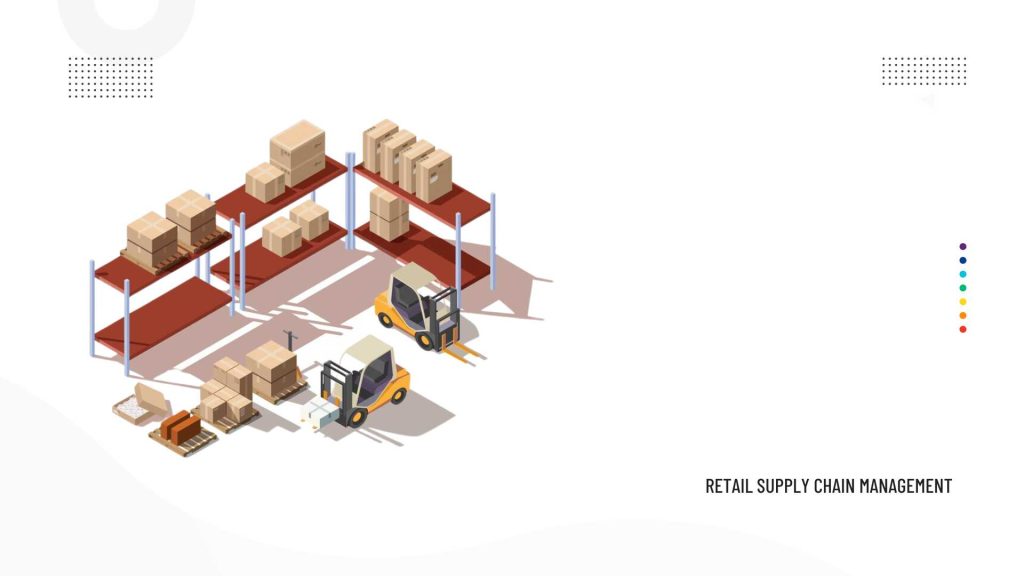Retail Supply Chain Management is the strategic coordination of business processes to ensure the seamless flow of goods from suppliers to end consumers. An efficient supply chain is crucial for retail success, as it directly impacts product availability, customer satisfaction, and overall profitability. To accomplish this, retailers must implement strategies that enhance every facet of the supply chain, from sourcing to delivery.
Strategies for Retail Supply Chain
Focus on High-Quality Products
Quality control is paramount in maintaining a competitive edge. By focusing on sourcing high-quality products, retailers can reduce return rates and build customer loyalty. Implementing rigorous quality checks at various supply chain stages ensures that only the best products reach the consumers.
Improve Product Traceability
Traceability is essential for ensuring product safety and compliance with regulations. By implementing advanced tracking technologies like RFID and blockchain, retailers can monitor products throughout the supply chain. It enhances transparency and helps quickly address recalls and counterfeit goods.
Speed Up Order Processing
Efficient order processing is critical to meeting customer expectations for fast delivery. Automating order processing through integrated systems can significantly reduce lead times. This includes automating tasks like order entry, inventory updates, and shipping notifications to streamline operations and reduce human error.
Streamline Returns & Exchanges
A seamless returns and exchanges process can enhance customer satisfaction and loyalty. By simplifying return policies and using automated systems to handle returns, retailers can process them more quickly and efficiently. It not only improves customer experience but also helps manage inventory better.
Multichannel Approach for Demand & Supply
Managing demand and supply across multiple channels is crucial in today’s retail environment. A multichannel approach ensures that inventory is optimally distributed and available where customers need it. Integrating sales channels—online, in-store, and mobile—allows for better inventory visibility and management, ensuring products are available when and where customers want them.
Challenges in Retail Supply Chain
Global Shortages
Supply chain disruptions caused by global raw materials and finished goods shortages can severely impact retail operations. Diversifying suppliers and increasing inventory buffers can help mitigate these risks. Additionally, maintaining strong relationships with key suppliers can ensure priority during shortages.
Forecasting Demand
Precise demand forecasting is essential for holding the right inventory levels. However, it is often challenging due to market volatility and changing consumer behaviors. Leveraging advanced analytics and machine learning can improve forecasting accuracy, allowing retailers to better anticipate demand and reduce overstock or stock outs.
Cost Fluctuations
Cost fluctuations, whether due to changes in raw material prices, labor costs, or transportation expenses, can affect profitability. Retailers must adopt dynamic pricing strategies and cost management practices to stay competitive. These include regularly reviewing supplier contracts and exploring alternative suppliers to keep costs under control.
Customer Demands
Today’s customers expect fast delivery, easy returns, and personalized experiences. Meeting these demands requires a flexible and responsive supply chain. Implementing customer feedback mechanisms and data analytics to understand customer preferences can help tailor services to meet their expectations.
Omnichannel Complexities
Managing an omnichannel supply chain involves coordinating multiple sales and distribution channels. This complexity can lead to issues with inventory accuracy and order fulfillment. An integrated supply chain management system can help synchronize operations across channels, providing real-time visibility and control.
Conclusion
With an Acumatica Retail software solution, you can manage omnichannel orders, inventory, returns, customer support, and accounting from one dashboard. This unified approach simplifies the complexities of retail supply chain management, enabling retailers to deliver a seamless customer experience while optimizing operational efficiency.

Vijay comes with a vast experience in ERP and enterprise solutions space with about 20 years of experience in various packaged application like Acumatica, SAP, Orion, Salesforce.com, SugarCRM and, SalesLogix.

